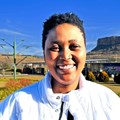
Subscribe & Follow
#AfricaMonth
In the news
Building a social justice mindset in a school environment

Social justice and all that it incorporates is fundamentally about hearing, seeing, and understanding people, not only those in our lives, but in the wider community as well – and playing a role to ensure that everyone is treated with dignity, respect, and equality.
World Day of Social Justice, held in February each year, is a United Nations initiative to recognise the need to promote social justice at every level of society. This is an excellent opportunity to boost awareness of the need for a social justice mindset that promotes fairness and equity every day of the year and on a global scale.
Teaching the principles underpinning social justice to children from a young age can set them up for life as responsible and outward-looking citizens of the world and the leaders of tomorrow.
With this in mind, The Ridge School in Johannesburg, which accommodates boys from Grade 0 to Grade 7, has social justice at the heart of its culture and we’re seeing the positive impact of this ‘taught’ awareness in the boys, as well as in our teachers and parents.
In my experience, the practical ways that a community of students, teachers and parents in a school can advance social justice includes tackling the issues with a ‘willing to listen’ and open approach to ensure that the people we are engaging with are not offended or uninterested.
Incorporated into the curriculum
Elements of social justice can be incorporated into the curriculum and adapted to other areas of school life, such as fairness in sports, and exposing students to each other’s differences in arts and culture activities, which can develop a richer worldview.
However a social justice approach is implemented, each member of the school community should recognise that they play an important role in creating an environment that promotes equity for all.
At a simple level, even young students can be taught how people create worlds with our words. The language we use and the way we use it can present an acceptable message to one group, but a negative message to others. With this knowledge, children can be more attuned to the impact their words have on their peers or other people in their lives.
Another drive that is working well is encouraging children to self-reflect and consider others by coming up with their own ideas on how to bring the peers in their grade closer together by actively listening and engaging with others from different backgrounds.
In The Ridge School’s engagements and activities, we aim to ensure a communal process and an acceptance that, “even if I didn’t cause the hurt, I acknowledge that it exists and find ways to ease it.”
Teachers play an important role in guiding social justice discussions and in leading by example, and equipping them for these roles and including them in curriculum decision-making is an important part of the process.
Incorporating social justice priorities for a school community can ensure that:
- Everyone feels heard, seen and included
- The vision of each member is trusted
- Fairness is considered in each decision made
- All members are equally treated with grace and respect
- Togetherness is at the heart of discussions
- The community is united in addressing exclusionary attitudes
My hope is building a society where all people have equal access and are given equal treatment, which is supported by the conviction that, in Nelson Mandela’s words, “It is in our hands to make a better world for all who live in it.”













